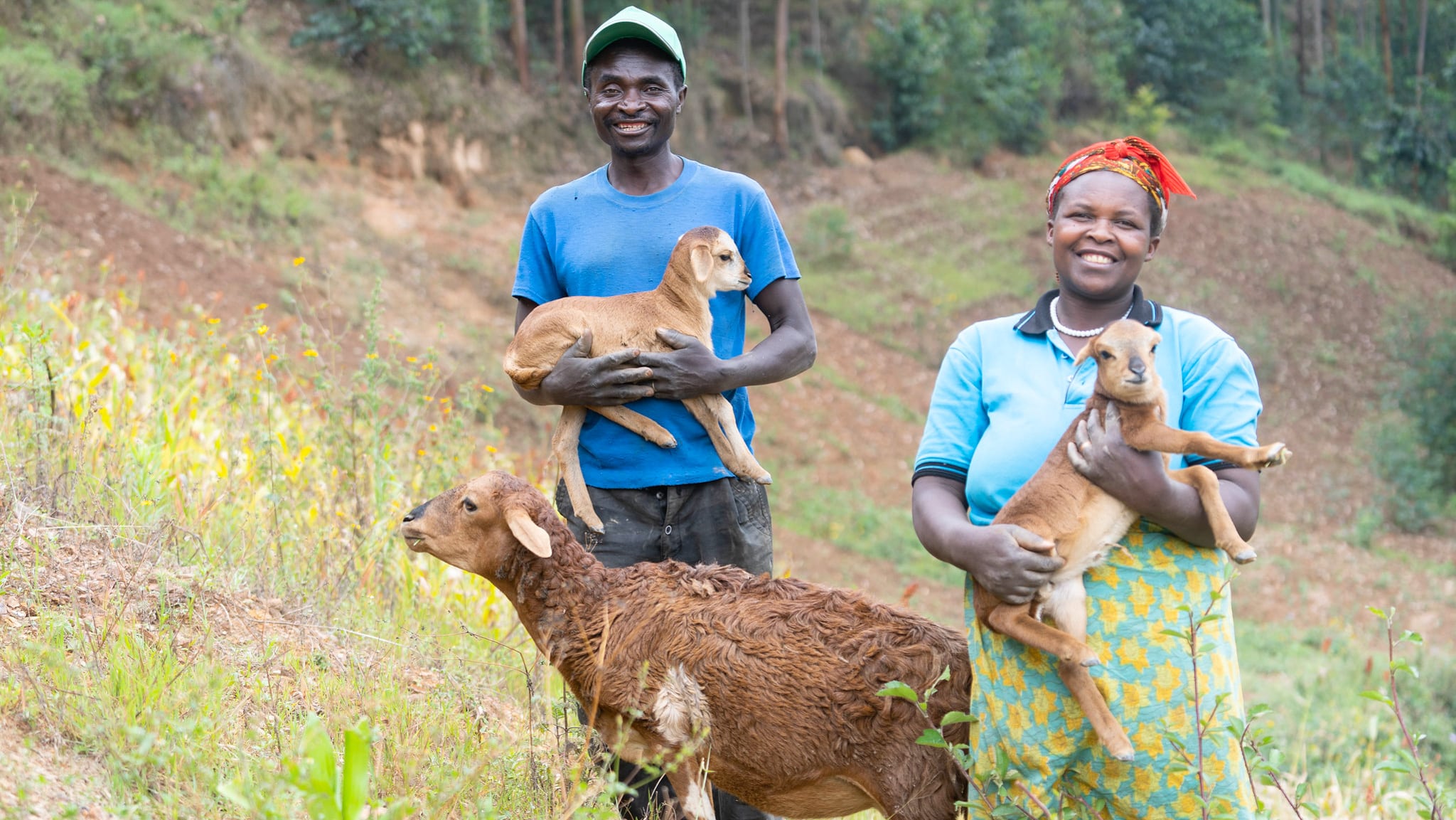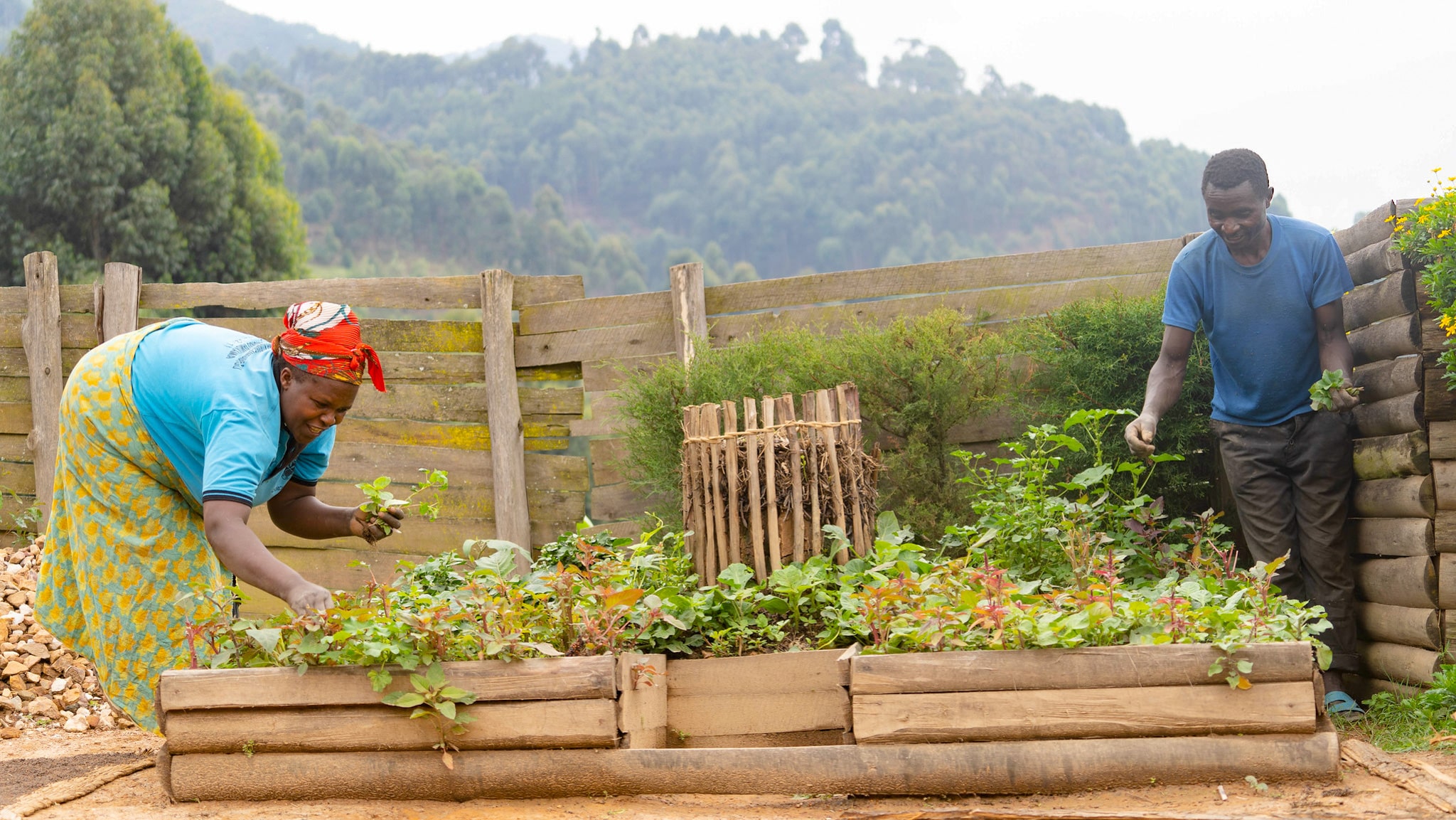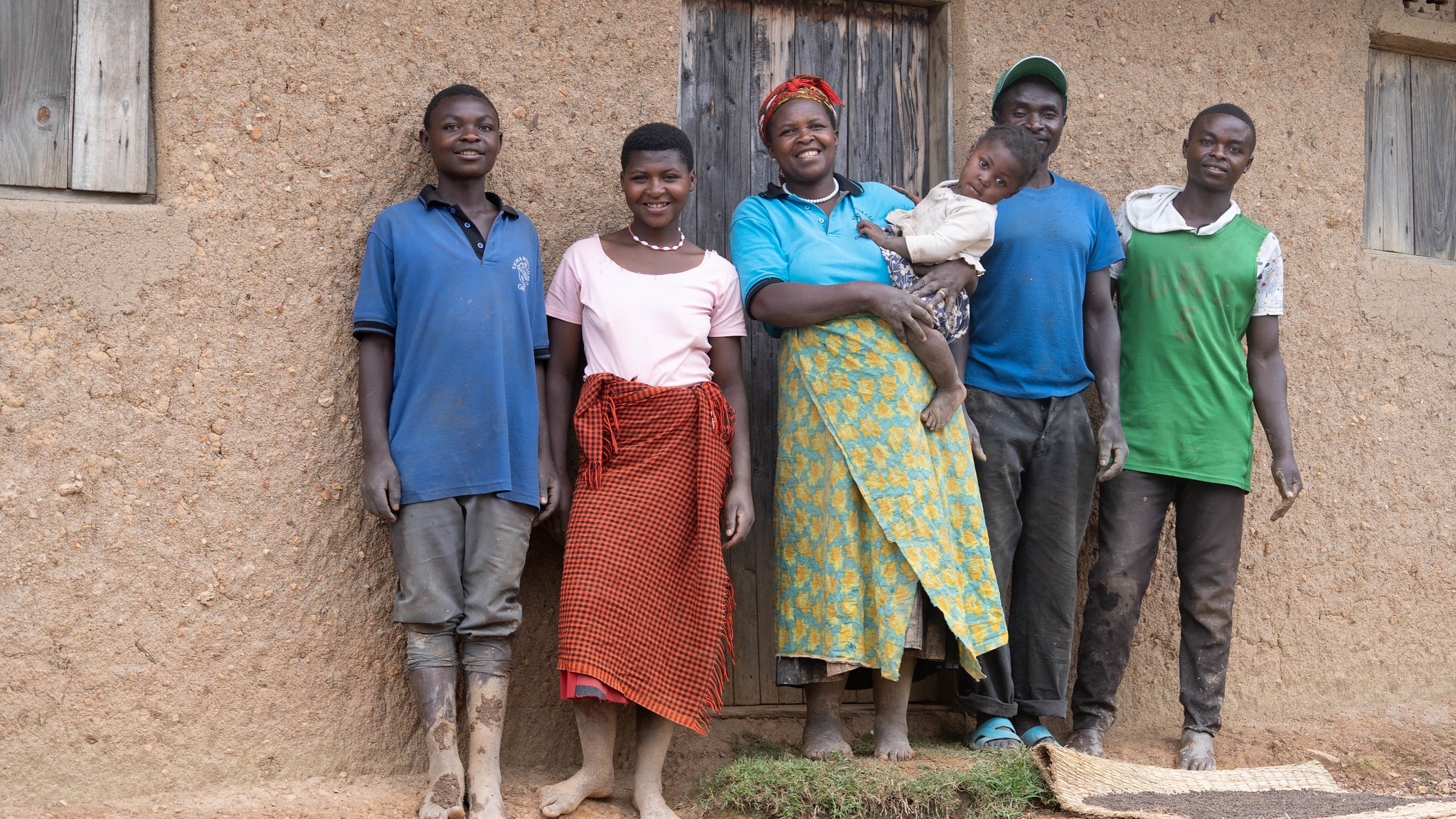Two Halves, Equal Partners

Today, Winnie and her husband, Jack, feel proud of overcoming challenging times. Doting parents to four, they have achieved what any parent would want – food security and the economic means to build a bright future for their children. But achieving this was not a one-person job; it took the combined efforts and hard work of two enterprising individuals.
Not long ago, they struggled to meet the most basic needs. As subsistence farmers, they were sometimes forced to go hungry without food or income. In addition to supporting three children, they were trying their best to fulfil their growing toddler’s nutritional needs. “One of our biggest problems was running out of food. We suffered from hunger often, especially during the dry seasons,” Jack shares. To meet his family’s needs, Jack tried securing a job in the capital of Uganda, Kampala, while Winnie stayed back and took care of the children and household chores. After several attempts that did not bring back enough income, Jack returned to his village, Kitwaulira, in time to participate in Raising The Village (RTV) ‘s program launch and participate in the consultation process. Jack and Winnie, with the rest of the community members in Kitwaulira, brought forth the issues preventing them from investing more time in income-generating activities.

Lack of know-how, income diversity, access to essential services and food security were common denominators between Kitwaulira and other last-mile communities in Sub-Saharan Africa. RTV’s approach that drives and diversifies agricultural income enables participation by addressing barriers and promotes sustainability through equitable local leadership fit the community’s needs well. As active partners, members of Kitwaulira created a roadmap with RTV, formed local committees on agriculture and livestock management and started building their pathway out of poverty.
Winnie and Jack participated in training on Good Agronomic Practises (GAP) and learned modern farming techniques, including planting vegetable gardens to fulfil household nutritional needs. They also learned about raising livestock and received good-quality seeds and technical assistance. They planted a compound garden and started growing their own vegetables. Winnie began to invest her time managing the vegetable garden, with Jack pitching in and applying newly learned techniques to their farm. After a while, the garden fulfilled their family’s nutritional needs and brought in additional income from surplus produce. “In the past, I had to wait for my husband’s visits to Kampala to make some income, but now, our farm, livestock projects and compound gardens provide us with food and income,” Winnie said.
In addition to agricultural techniques, they also learned about financial literacy and budgeting and gender equality. The community members established a Village Savings and Loan Association (VSLA) to pool savings and self-fund community projects. Winnie and Jack joined the VSLA to save their surplus income and access credit and decided to buy livestock. We saved money in our VSLA and then were able to buy a sheep that has had two lambs so far. To us, this is a footstep towards our enterprise”, Jack mentions.

Six months after the beginning of the joint project, the community formed various local committees to pool knowledge and guide fellow members on agriculture techniques, livestock, joint, women and youth-headed VSLAs and set their own goals for community development projects. Encouraged by improved productivity in the farm, garden and livestock business, Winnie and Jack, too, planned their next steps to build assets further. “We plan to buy more land, plant more crops and build a better house from our earnings,” says Winnie.
While Winnie and Jack are proud of what they have achieved and the foundation they have laid, they are prouder of how they did it – together as equal partners working in tandem. And with lots more to be done, they plan to keep doing it together.
Be part of our journey. Support last-mile communities by supporting Raising The Village.
Let’s Stay Connected

